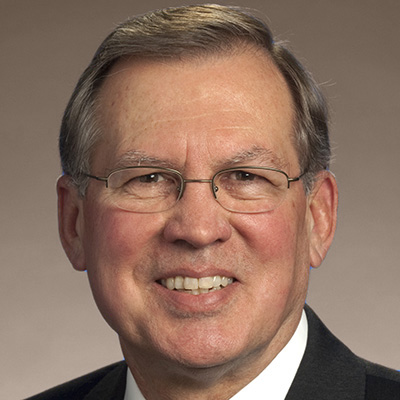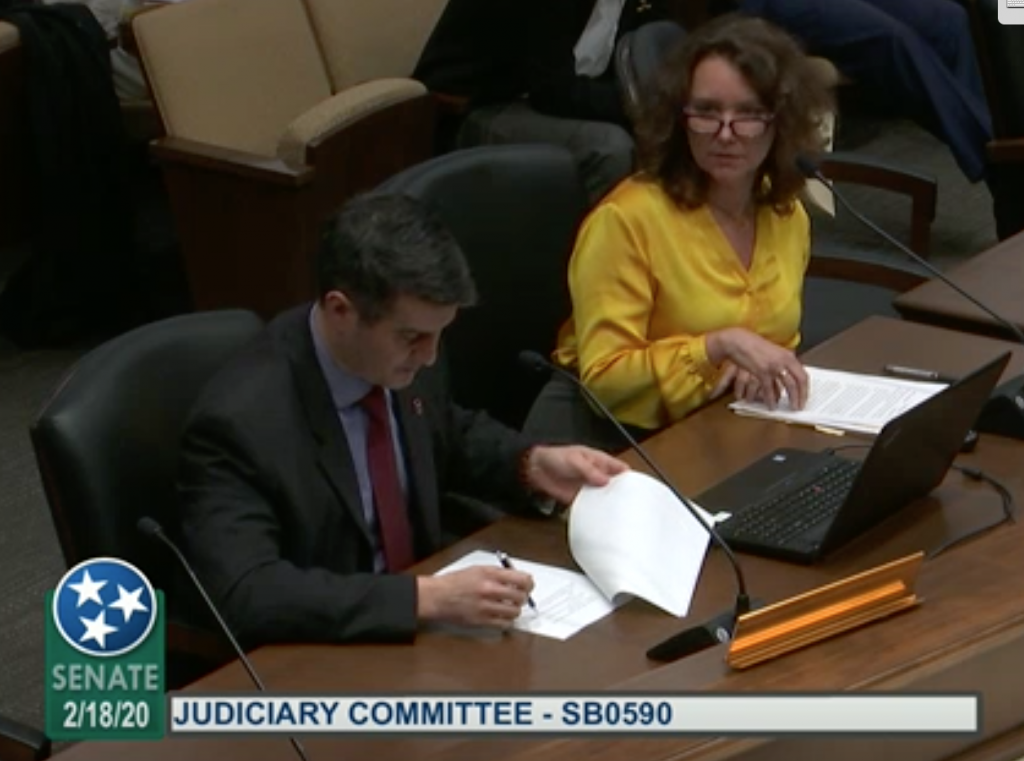Revised bill aims to stop harassment from public records requesters

A bill to give government officials tools to stop what they view as harassment through public records requests was filed this week by state Sen. Ferrell Haile, R-Gallatin.
The bill is similar to a version that failed in the Senate Judiciary Committee last year on a 5-4 vote, but has some key changes.
After the bill failed last year, Haile asked the Advisory Committee on Open Government to review it and give suggestions.
State Rep. Jason Zachary, R-Knoxville, is carrying the House version.
Haile plans more changes to bill
Haile told TCOG yesterday that he still planned to make some changes to the bill, S.B. 135/H.B. 197.
The bill as filed differs from last year’s bill in that it requires mediation by a “certified mediator” before a government entity may petition a court for an order to prevent a citizen from making additional public records requests.
If the requester and the government entity cannot resolve their dispute in mediation, the government entity can then go to court.
Harassment definition has 3 criteria
Under the bill, a judge could find by a “preponderance of evidence that a records request constitutes harassment” and “enjoin the person who made the request from making a public records request for a period of up to one (1) year…”
The records request can be considered harassment if it meets three requirements:
- It is made in a manner that would cause a reasonable person, including a records custodian or any staff of the public entity in control of the public records, to be seriously abused, intimidated, threatened, or harassed;
- The conduct in fact seriously abuses, intimidates, threatens or harasses the person; and
- The request is not made for any legitimate purpose.
Legitimate purpose provides safe harbor
A definition of legitimate purpose is included in the bill, effectively providing a safe harbor to requesters who meet the definition.
The bill states that ” ‘Legitimate purpose’ includes, but is not limited to, gathering information for the purpose of:
(1) Publication or broadcast by a person engaged in gathering information for publication or broadcast connected with or employed by the news media or press, or who is independently engaged in gathering information for publication or broadcast, excluding the gathering of information for publication or broadcast only on a social media platform;
(2) Using the information for a commercial purpose or for academic research; and
(3) Investigating or evaluating government operations for a public purpose.”
The definition of legitimate purpose differs from last year’s bill in that it excludes the activity of posting to social media as an automatic safe harbor.
Volume of requests no longer a trigger
Another difference from last year’s bill is that the harassment definition is no longer triggered by the number of public records requests. The previous bill required six or more requests that met the definition of harassment before a government entity could take action. Last year’s bill also included in the harassment definition that the request had to be “made maliciously.”
The new bill, as before, requires a government entity who goes to court to provide written reports to the Office of Open Records Counsel that include the petition and any orders issued by the court. It also requires the Office of Open Records Counsel to provide a summary of the reports as part of its annual report to the General Assembly and to provide a summary to the Advisory Committee on Open Government.
Automatic repeal date included
As before, the statute would be repealed in four years (July 1, 2025), allowing a new General Assembly to consider its effectiveness.

TCOG supported last year’s bill, mainly because of the safe harbor provisions, the high bar for proving harassment and the requirement of reports to the Office of Open Records Counsel that would help monitor how government entities were using the statute.
Last year’s discussion on the bill by the Senate Judiciary Committee can be seen here. This includes TCOG’s comments on the bill and answers to the judiciary committee. It also includes testimony by Lee Pope, the state’s open records counsel.
TCOG to monitor and study bill
TCOG is still studying this year’s bill, as will monitor potential changes. TCOG will release an assessment of the bill’s protections for requesters later.
The main concern of TCOG is that the bill not provide a way for government officials to use the process as a club or threat against requesters they don’t like or to delay or prevent access to public records that they don’t want to release.
Email TCOG with feedback
As TCOG continues to monitor the bill and work with lawmakers to provide information, we encourage you to give us feedback at [email protected]. You may read the entire bill here for details.




